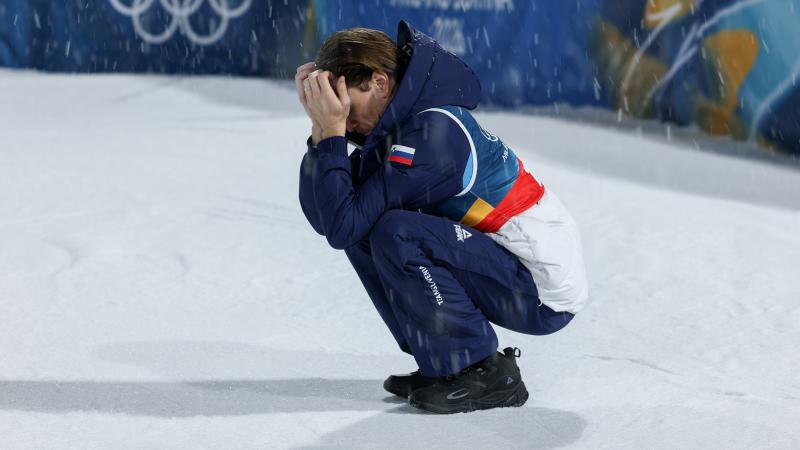Is Belarus the next Crimea? Nearby Baltic nations fear new Russian aggression
Worsening relations between Moscow and Minsk could turn Belarus toward West, say observers.
The changing relationship between Moscow and Minsk has left nearby Baltic nations increasingly vigilant against a Russian incursion on Belarus, foreign military officials have told Just the News.
“We have been watching for Crimea, part two,” said a Lithuanian Land Forces officer, in reference to Russia’s 2014 capture of Crimea from Ukraine. “Now we are waiting.”
“There are new developments,” said an Estonian Defense Forces officer. “Things are getting worse.”
Allied since the Soviet Union dissolved in 1991, Belarus and Russia in 1999 signed a “union state” treaty to enhance economic ties between their two countries. Over the years, Belarus President Alexander Lukashenko — dubbed “Europe’s last dictator” — has voiced qualms about forging closer ties.
“The Russian leadership is demanding that we join the Russian Federation — that's what is in the heads of the Russian leadership,” Lukashenko said in 2007. “I don't want to bury the sovereignty and independence of the country.”
The treaty drew scant international attention, though, until 2014, when Russia seized Crimea. Some observers then warned that Russia also would expand westward to encompass Belarus, abutting Poland and closing the distance between Russia and its exclave Kaliningrad on the Baltic Sea.
“That is when the two so-called friends got less friendly,” the Lithuanian Land Forces officer said.
Lukashenko did not recognize Crimea as belonging to Russia. Later, he rebuffed Putin’s plan to place Russian military bases inside Belarus.
Last year, Moscow cranked up the pressure on Minsk, raising energy prices while lowering subsidies.
“Putin wanted to force Lukashenko to sign the treaty,” the Lithuanian officer said. “The entire region watched closely.”
So, too, did the United States Congress. In November, the Commission on Security and Cooperation in Europe, also known as the Helsinki Commission, held hearings into Russia’s moves on Belarus.
In his opening statement, commission chairman, Rep. Alcee Hastings (D-Fla.) offered this assessment: “Russia has not started a hot military conflict in Belarus as it has in Ukraine, but rather employs economic, social, political, and information leverage to weaken the sovereignty of Belarus and pull the country further into its orbit.”
In December, Lukashenko — rankled by years of repeated threats to his nation's gas and oil supplies — took to the airwaves in protest.
“If Russia tries to violate our sovereignty as some people say, you know how the global community will respond; they will be drawn into a war,” Lukashenko said during a Christmas Eve radio interview. “The West and NATO won’t tolerate that, because they would see it as a threat to themselves. In that sense, they would be right.”
While the United States did not affirm Lukashenko’s scenario of going to war over the non-NATO Belarus, the prospect particularly alarms the small Baltic nations — Lithuania, Latvia, and Estonia — that share borders with Russia or Belarus and fear that they could be next.
“This is not some war game scenario,” the Lithuanian Land Forces officer said. “This is possible.”
One longtime observer of Eastern Europe agrees.
“The threat to Belarus is real,” said David Isby, a Washington-based defense and foreign policy consultant. “A total military solution, with tanks across the border, remains a threat, just as Ukraine has been threatened for years with Russian tanks going to Kharkov.”
Russia also could accomplish its goal without heavy armor, Isby warns. “The other threat is economic pressure, especially energy, and a repeat of the gray area, asymmetric, hybrid ‘little green men’ threat that succeeded in Crimea,” he told Just the News
In April, relations between Minsk and Moscow further soured, when Putin closed Russian borders in order to contain the coronavirus.
Lukashenko complained that Putin had not warned him Russia would include Belarus in the lockout.
“I understand if there had been some terrible situation there and it was necessary to take urgent action,” Lukashenko said on state television. “However, there was no logic then.”
Russia shut out the very state that it hopes to be partners with, Lukashenko said, noting that Russia treated Belarus differently from regions inside the Russian Federation. “They did not divide themselves into parts (Russia is huge) to block the movement of people and coronavirus carriers. This was simple recklessness. What about the saying ‘a friend in need is a friend indeed?’”
One benefit to the tense situation, the Estonian officer said, is that Lukashenko might turn more to the West.
“Lukashenko cannot help but see that the West will treat him better,” the officer said.
Such overtures already are in place. In February, U.S. Secretary of State Mike Pompeo met with the Belarusian foreign minister in Minsk, where Pompeo professed U.S. support for Belarusian sovereignty.
“The Secretary affirmed the willingness of U.S. companies to begin immediately selling oil to Belarus at competitive market prices,” State Department spokesperson Morgan Ortagus said in a statement. “The Secretary and the Foreign Minister also discussed the potential to increase bilateral business ties, including plans for an independently organized senior U.S. trade delegation to travel to Minsk later this year.”
The move does not surprise the Baltic officers — nor contradict the observations of U.S. politicians.
“Lukashenko is a tyrant, but not a fool,” said the Helsinki Commission’s Rep. Joe Wilson (R-S.C.) during the November hearings. “He knows that engagement with Europe and the West is not optional in this day and age. He sees Putin’s greedy fingers have reached into Ukraine.”
Still, the Estonian officer said, “the entire Baltics is fixated on Kaliningrad,” where Russia recently installed new Smerch long-range multiple launch rocket systems.
Said the Kremlin in a March announcement: “MLRS Smerch is designed to defeat any group targets, open and sheltered manpower, lightly armored and armored military equipment, missile and artillery units, command posts, communication centres and other enemy infrastructure.”
The Facts Inside Our Reporter's Notebook
Links
- Belarusian Diplomatic Service backgrounder on strategic partnership with Russia
- Al Jazeera on Lukashenko warning to Russia in 2007
- Atlantic Council alert
- CSCE hearing: Russian influence in Belarus
- Luskashenko TV interview
- Readout, Pompeo call with Belarusian FM
- Russian Defense Ministry announcement, MLRS Smerch
















